Latest Podcasts
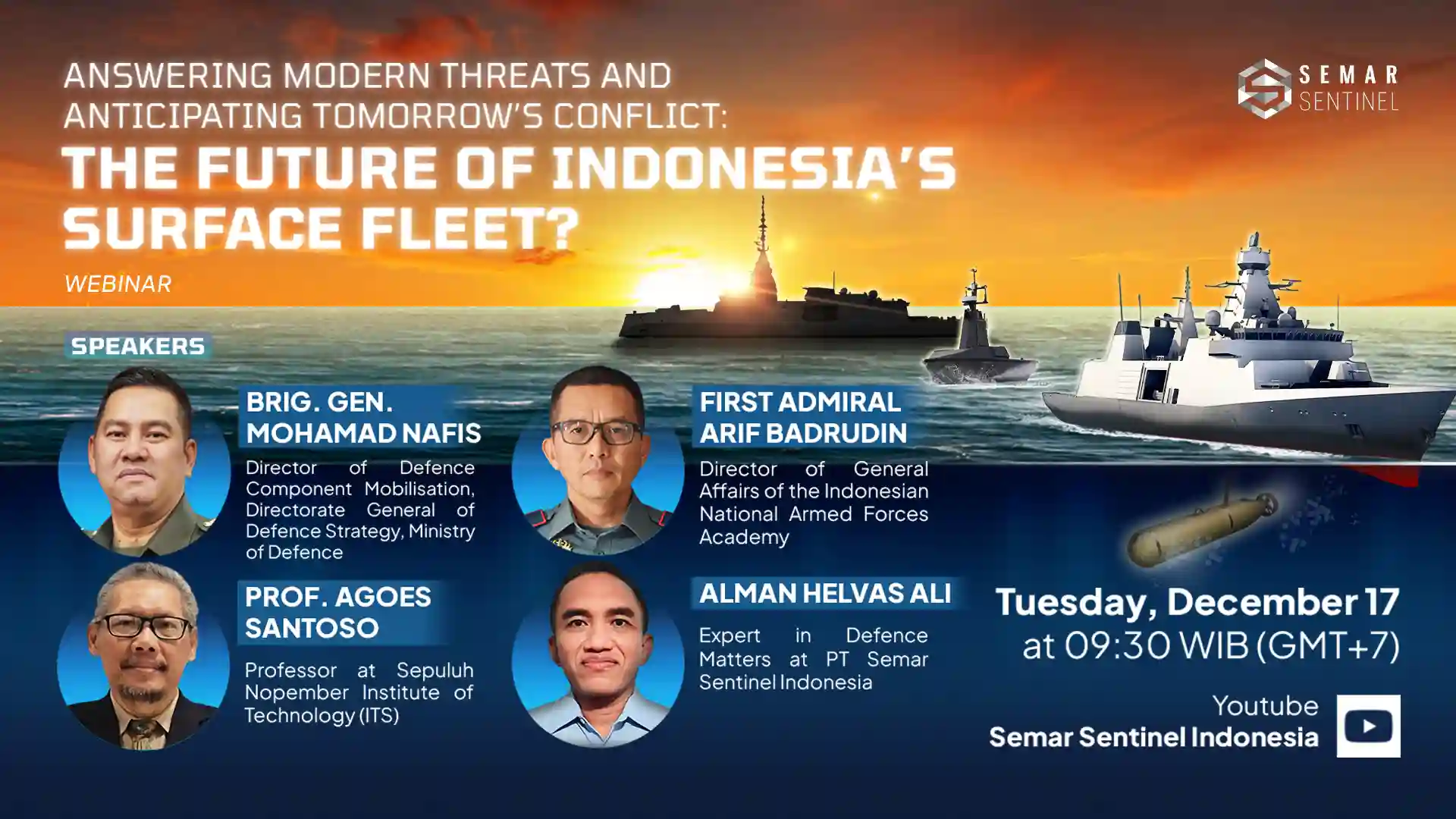
Answering Modern Threats and Anticipating Tomorrow’s Conflict: The Future of Indonesia’s Surface Fleet?

Answering Modern Threats and Anticipating Tomorrow’s Conflict: The Future of Indonesia’s Surface Fleet?

Indonesia on the Global Stage: Navigating Renewed Challenges

Indonesia on the Global Stage: Navigating Renewed Challenges
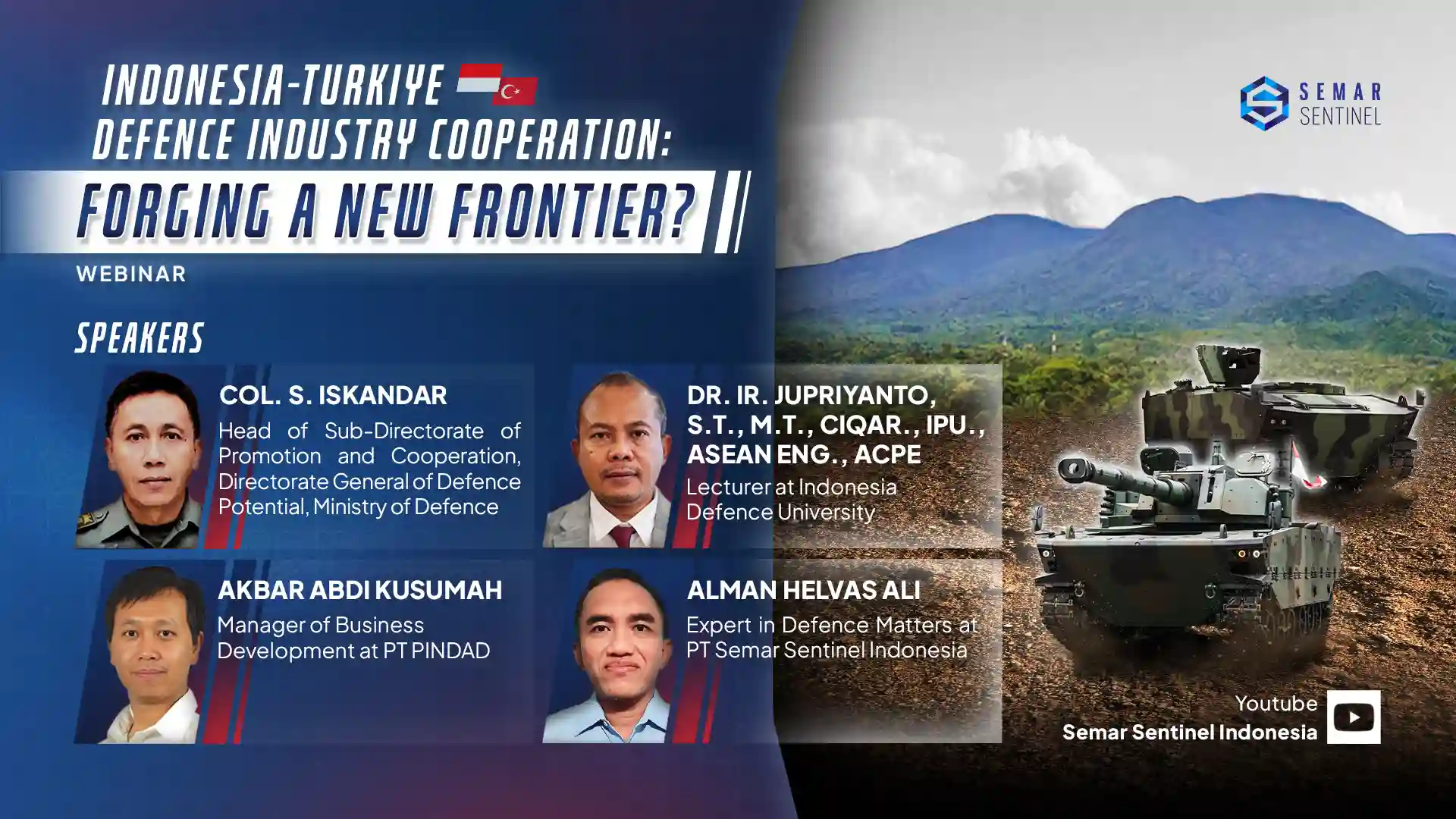
Indonesia-Turkiye Defence Industry Cooperation: Forging a New Frontier?

Indonesia-Turkiye Defence Industry Cooperation: Forging a New Frontier?
Browse All Topics of Our Podcasts
Explore a range of topics on our podcasts! Discover episodes that match your interests and dive into insightful discussions. Click to browse all topics.
Topics
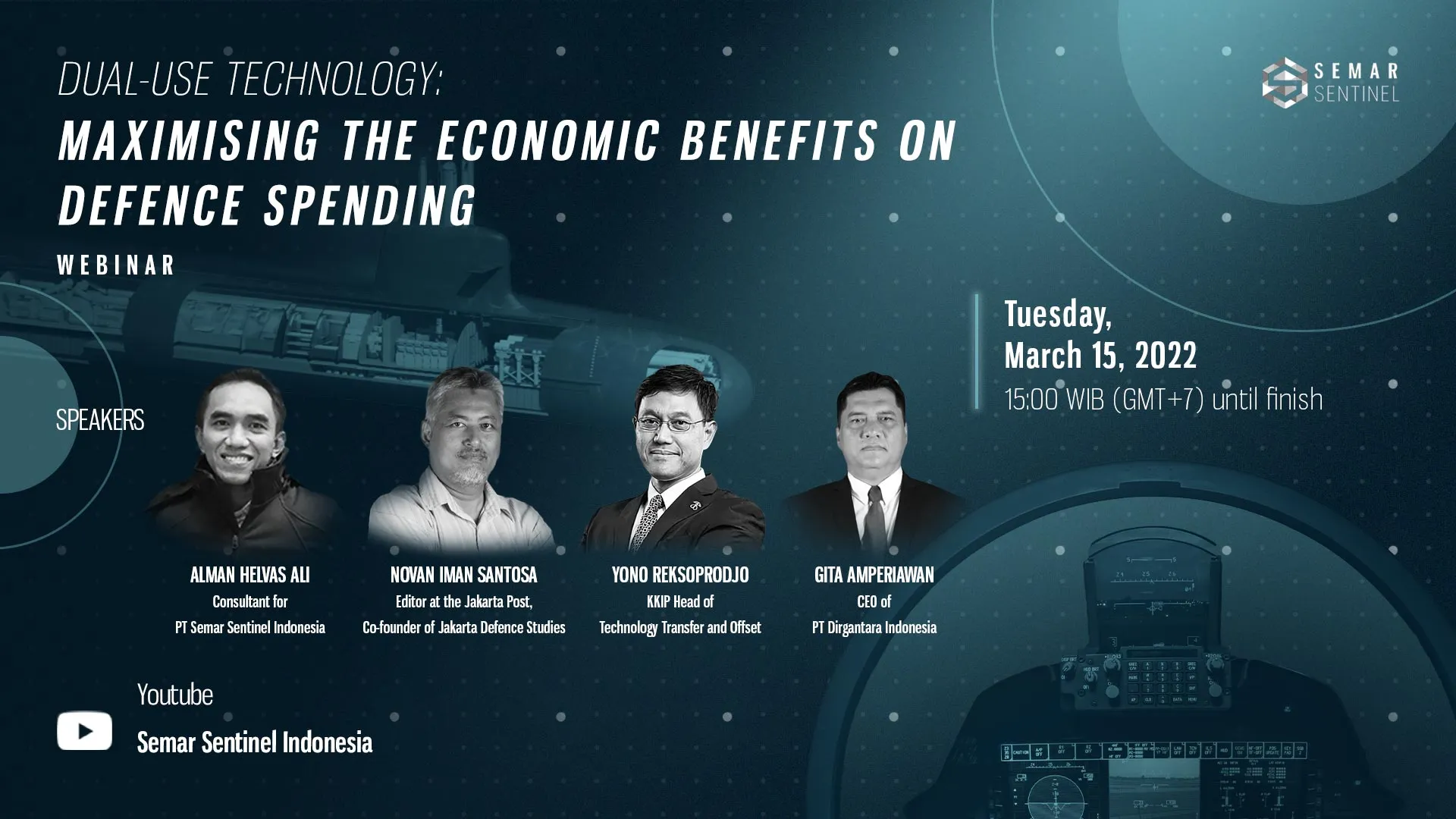
Dual-Use Technology: Maximising the Economic Benefits on Defence Spending
Opening Remarks
Alban Sciascia
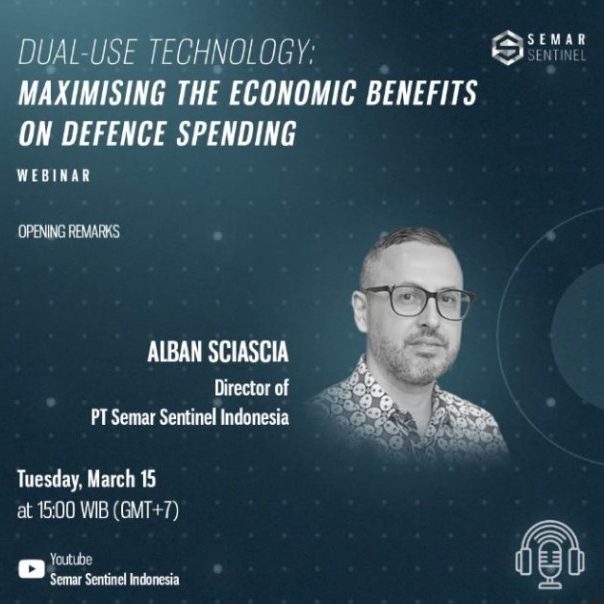
Alban Sciascia
Dual-Use Technology: Maximising the Economic Benefits on Defence Spending
Summary
In the latest webinar, our director, Alban Sciascia, highlighted that Indonesia could benefit from the recent signing of several Memorandum of Understanding (MoU) on defence equipment procurement through offset opportunities. M. Sciascia gave the example of composite materials in the aerospace industry, as well as batteries from submarines, as dual-use technologies that Indonesia could obtain and capitalise on.
Speaker
Dr. Ir. Yono Reksoprodjo
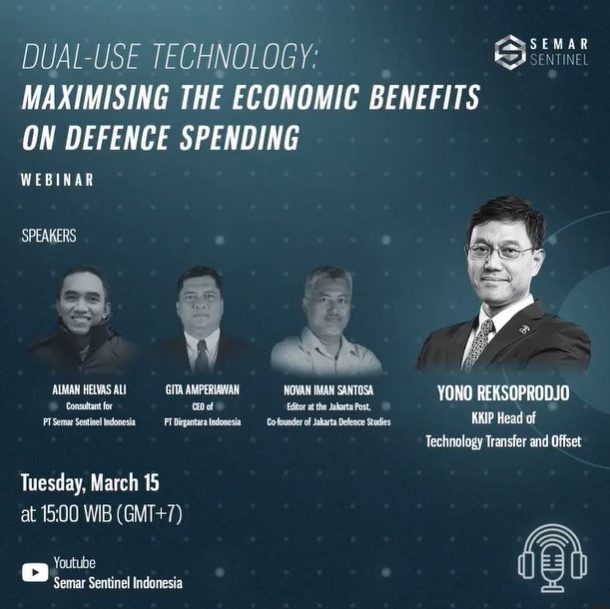
Dr. Ir. Yono Reksoprodjo
Dual-Use Technology: Maximising the Economic Benefits on Defence Spending
Summary
In our latest webinar, Dr. Ir. Yono Reksoprodjo argued that regardless of the defence equipment’s Indonesia aims to procure, there are several aspects that the government must assess, especially to meet the target of 60% of local industry contribution in arms procurement by 2024.
Speaker
Gita Amperiawan
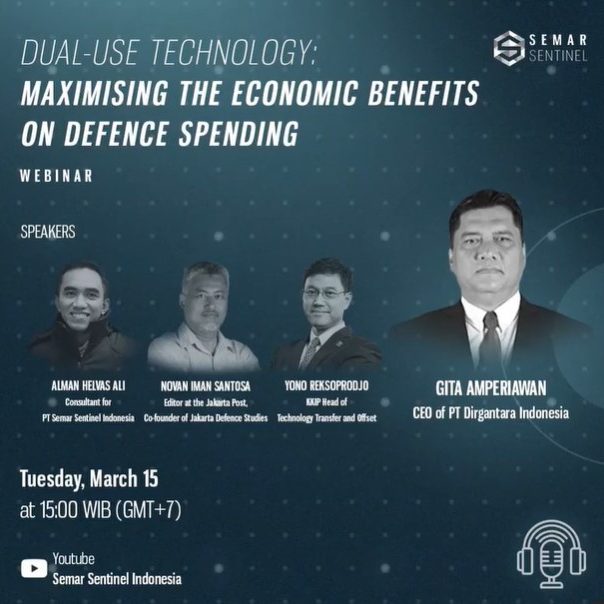
Gita Amperiawan
Dual-Use Technology: Maximising the Economic Benefits on Defence Spending
Summary
CEO of PT Dirgantara Indonesia, Gita Amperiawan, stated in our latest webinar that while the country is currently focusing on maximising the technologies that are being developed by PT Dirgantara Indonesia for defence equipment, such technologies are, in fact, also considered as dual-use that can also be implemented for commercial products.
Opening Remarks
Alman Helvas Ali
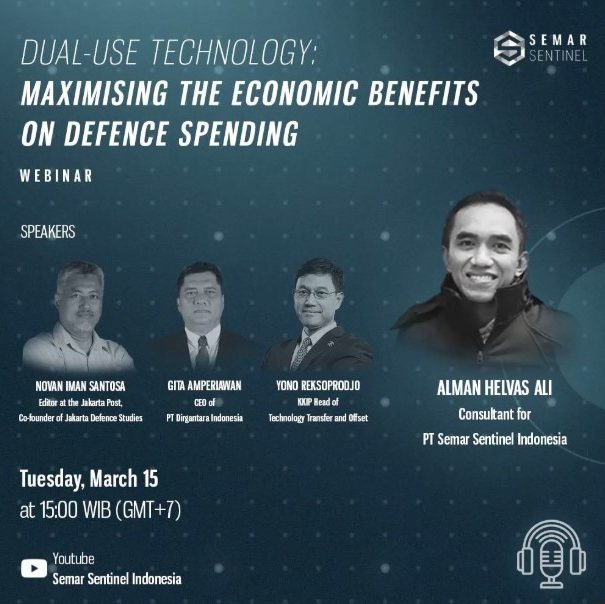
Alman Helvas Ali
Dual-Use Technology: Maximising the Economic Benefits on Defence Spending
Summary
Alman Helvas Ali, who was one of the speakers of our latest webinar, emphasised that Indonesia should carefully consider the transfer of technology programme that it is going to ask from Naval Group in the recent submarine procurement deal. M. Ali suggested that the most beneficial aspect for Indonesia would be to adopt the lithium battery technology that could eventually benefit the national EV battery industry.
Speaker
Novan Iman Santosa
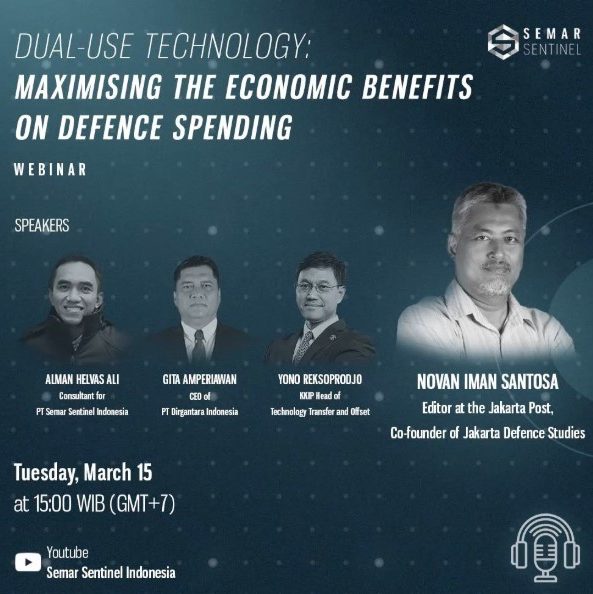
Novan Iman Santosa
Dual-Use Technology: Maximising the Economic Benefits on Defence Spending
Summary
In our latest webinar, Novan Iman Santosa, explained that new products that are obtained through dual-use technology development can eventually help Indonesia increase its economic scale from defence equipment procurement, as well as to cushion the costs of R&D activities for defence-related products.
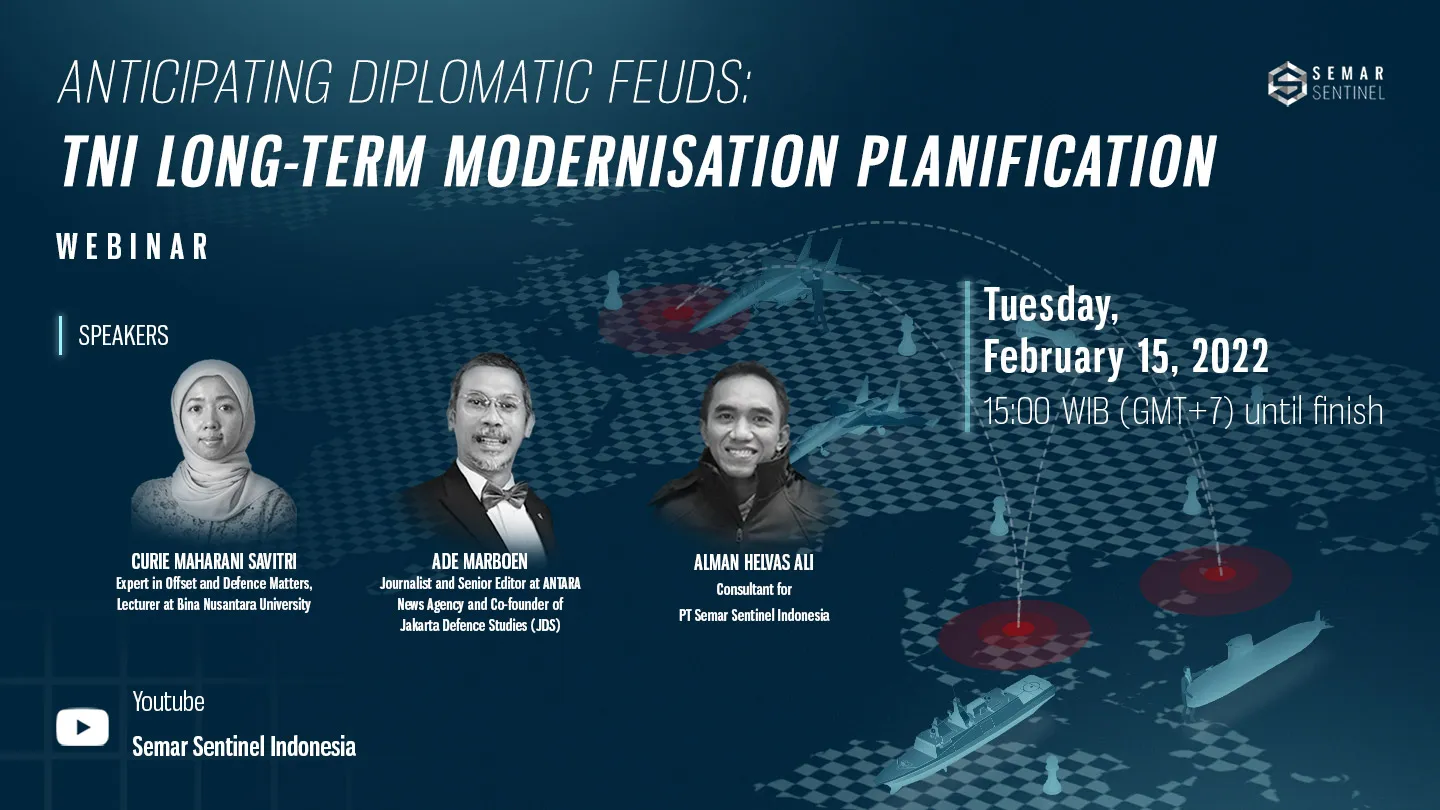
Anticipating Diplomatic Feuds: TNI Long-Term Modernisation Planification
Opening Remarks
Anastasia Febiola S
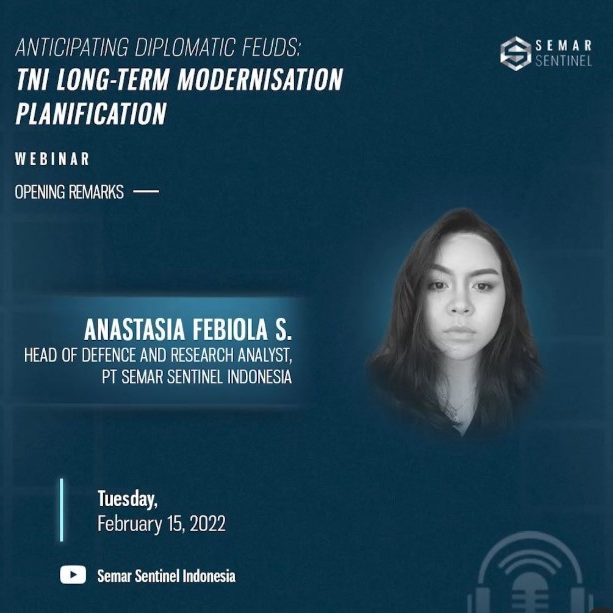
Anastasia Febiola S
Anticipating Diplomatic Feuds: TNI Long-Term Modernisation Planification
Summary
Indonesian policymakers must not omit certain aspects of international politics such as potential sanctions that could result from weapons procurement, and that would jeopardise the National Armed Forces (TNI)’s long-term modernisation plan. It is therefore crucial for Indonesia to find ways to minimise such a risk by carefully assessing its potential suppliers, their country of origins’ foreign policies, as well as their track records.
Speaker
Ade Marboen
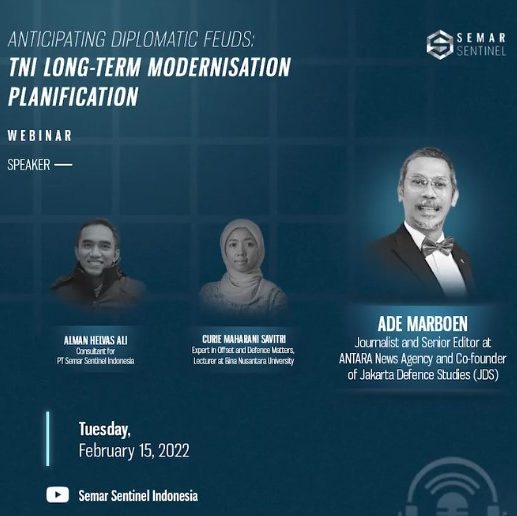
Ade Marboen
Anticipating Diplomatic Feuds: TNI Long-Term Modernisation Planification
Summary
Ade Marboen, who was one of the speakers in our recent webinar, stated that Indonesia needed to find alternatives to Russian weapons operated by the Indonesian National Armed Forces (TNI) in order to minimise the risk of being sanctioned.
Speaker
Curie Maharani Savitri

Curie Maharani Savitri
Anticipating Diplomatic Feuds: TNI Long-Term Modernisation Planification
Summary
Curie Maharani Savitri argued in our recent webinar that Indonesia should take into consideration three aspects for its long-term defence modernisation plan. First, Indonesian law stipulates that there cannot be any risk of embargo in procurement deals. Second, Indonesia should not acquire weapon systems from countries with whom it is in conflict. And, finally, the country must ensure its independence in the use and maintenance of weapon systems.
Speaker
Alman Helvas Ali
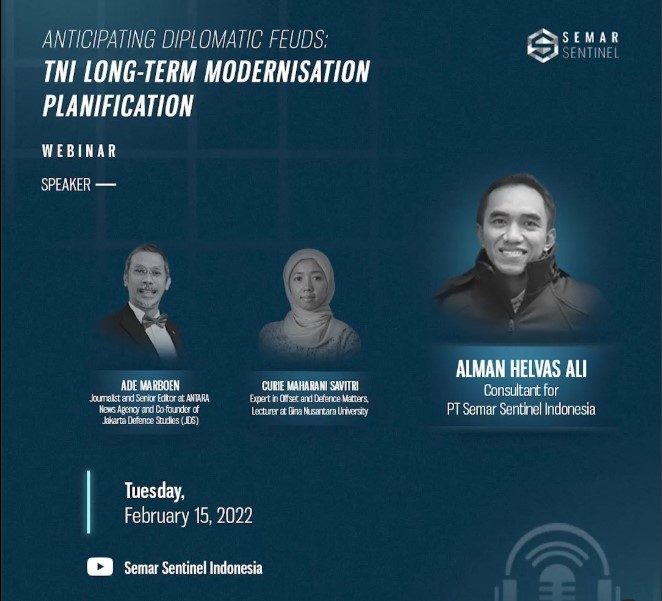
Alman Helvas Ali
Anticipating Diplomatic Feuds: TNI Long-Term Modernisation Planification
Summary
In our recent webinar, Alman Helvas Ali reminded that during the prelude to the invasion of Ukraine by Russia, states like Germany or Israel banned other countries from re-exporting their weapon systems to Ukraine. Consequently, Alman emphasised that Indonesia must learn from what happened and choose suppliers from countries whose foreign policy remains stable, especially in terms of arms export.
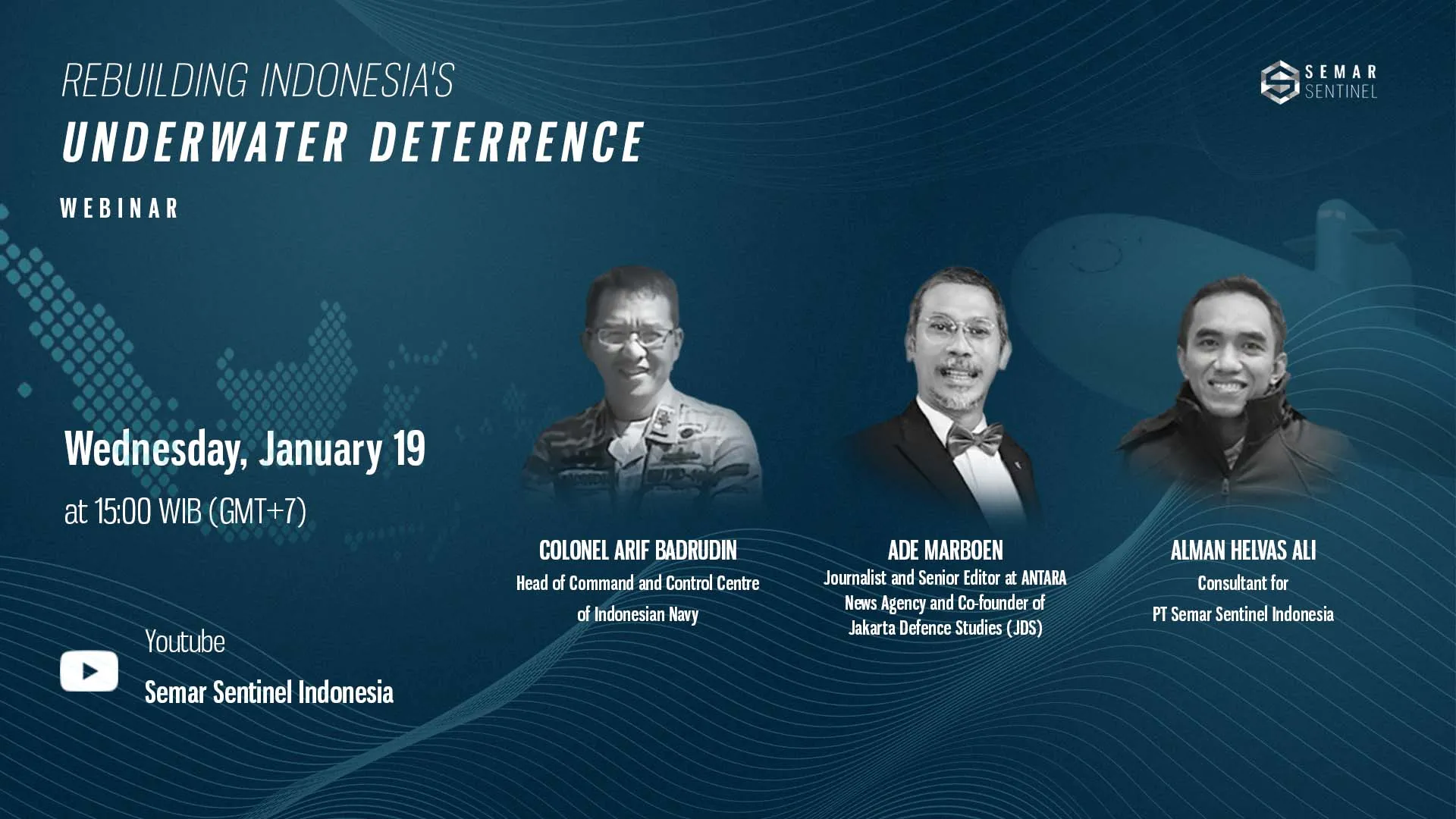
Rebuilding Indonesia’s Underwater Deterrence
Speaker
Alman Helvas Ali
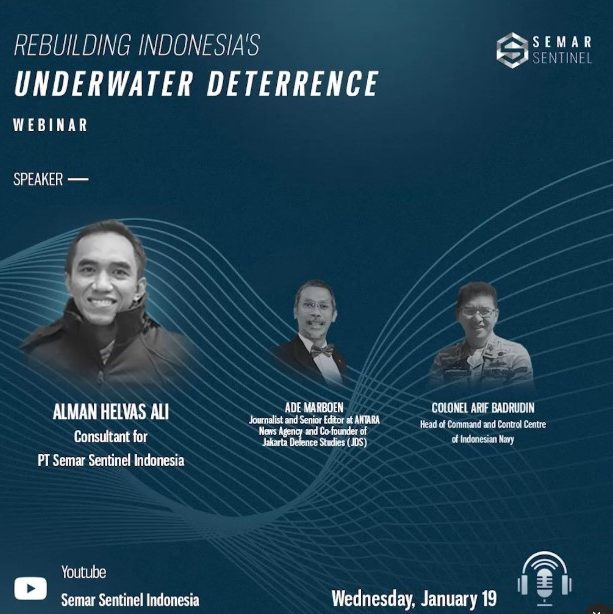
Alman Helvas Ali
Rebuilding Indonesia’s Underwater Deterrence
Summary
Alman Helvas Ali reasoned that submarine procurement is urgent, and the process needs to take into account other important factors such as qualified human resources, and MRO (maintenance, Repair, and Overhaul). He further insisted that the country has the capacity to revive its submarine fleet, but that the decision-making process has to carefully study the issue.
Speaker
Ade Marboen
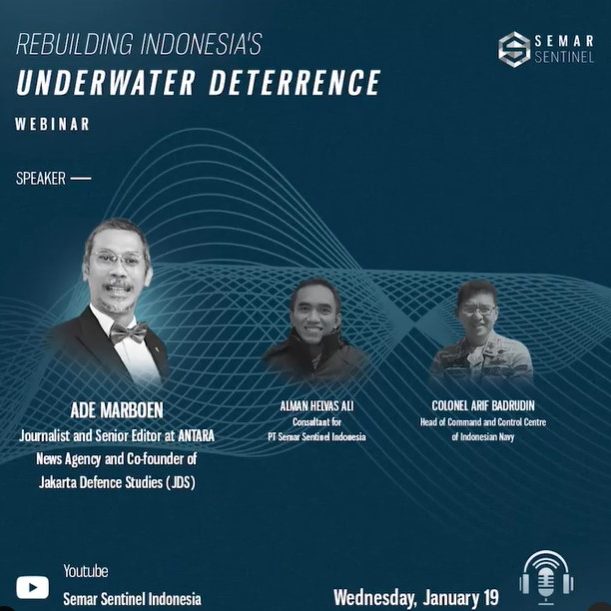
Ade Marboen
Rebuilding Indonesia’s Underwater Deterrence
Summary
Ade Marboen argued that due to Indonesia’s geography, the country Indonesia cannot go forward without submarines in light of its geographic exposition. He affirmed that the country’s finance, geopolitical context and existing threats should model the format of the submarine fleet.
Speaker
Colonel Arif Badrudin
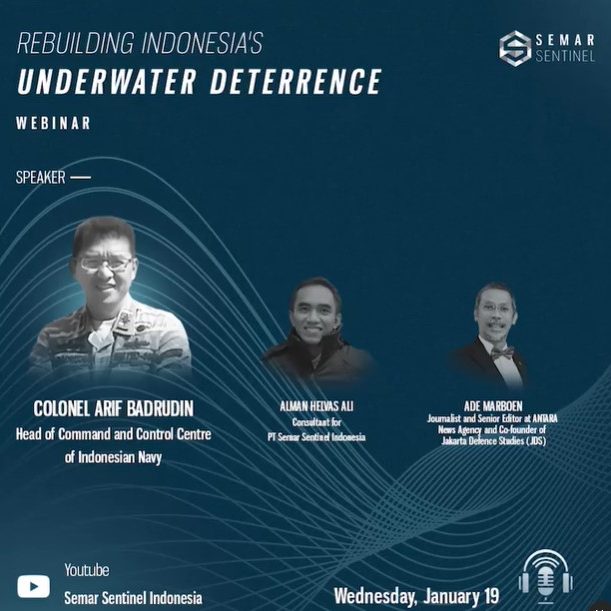
Colonel Arif Badrudin
Rebuilding Indonesia’s Underwater Deterrence
Summary
Colonel Arif Badrudin emphasised the importance of submarines’ role in a defence strategy. He explained that countries in the Asia-Pacific have been actively pursuing submarine procurement, both quantitatively and qualitatively, in order to adopt a credible defence posture.
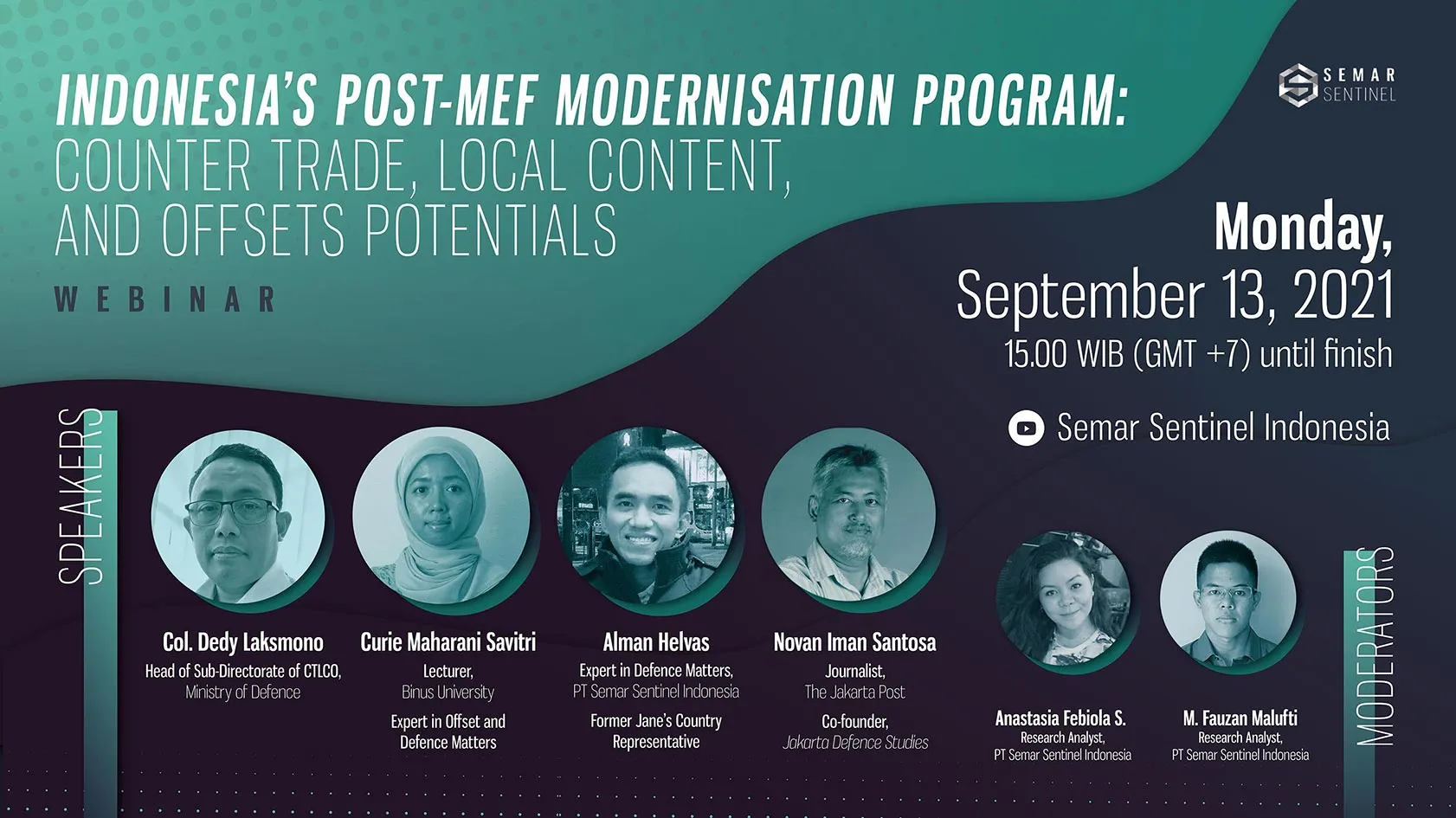
Indonesia’s Post-MEF Modernisation Program: Counter Trade, Local Content, and Offsets Potentials
Speaker
Col. Dedy Laksmono
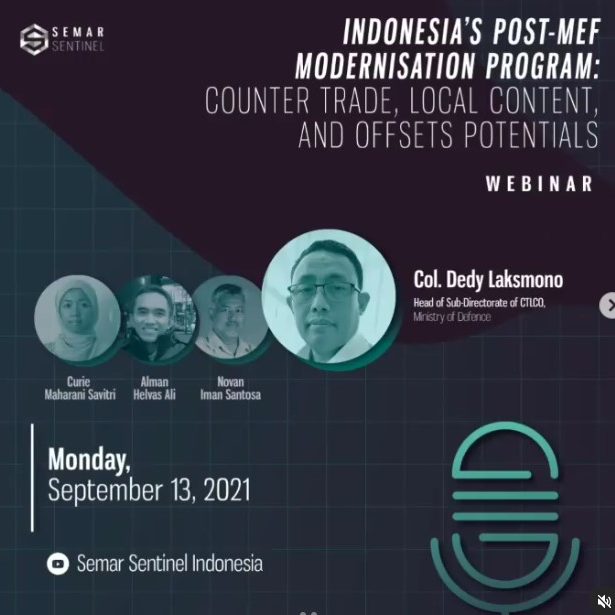
Col. Dedy Laksmono
Indonesia’s Post-MEF Modernisation Program: Counter Trade, Local Content, and Offsets Potentials
Summary
Col. Dedy Laksmono from Indonesian Ministry of Defence explained Indonesia’s current policy on Counter Trade, Local Content, and/or Offsets (CTLCO) and how Indonesia could achieve its defence industry priority programs.
Speaker
Curie Maharani Savitri
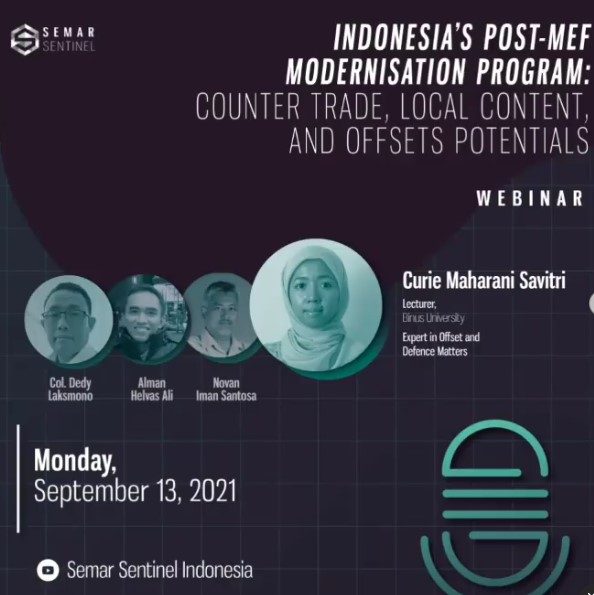
Curie Maharani Savitri
Indonesia’s Post-MEF Modernisation Program: Counter Trade, Local Content, and Offsets Potentials
Summary
Curie Maharani Savitri discussed what would it take for Indonesia to be able to modernise its armed forces through effective offset strategies, and how could the country increase its strategic autonomy when it comes to defence industry and arms procurement.
Speaker
Alman Helvas Ali
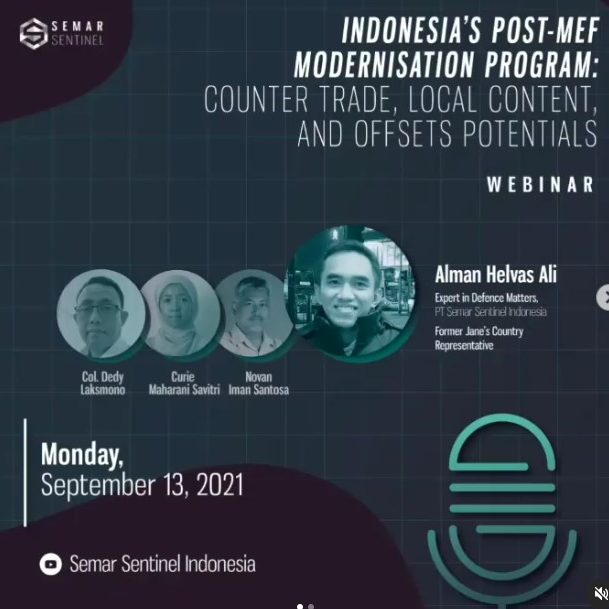
Alman Helvas Ali
Indonesia’s Post-MEF Modernisation Program: Counter Trade, Local Content, and Offsets Potentials
Summary
Alman Helvas Ali highlighted the economic opportunities that Indonesia can obtain from offsets program in defence equipment procurement and how to maximise this opportunity in the post-Minimum Essential Force (MEF) era.
Speaker
Novan Iman Santosa
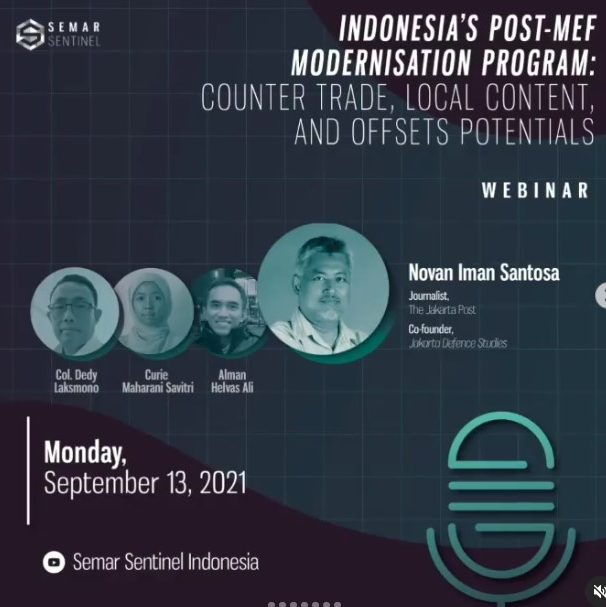
Novan Iman Santosa
Indonesia’s Post-MEF Modernisation Program: Counter Trade, Local Content, and Offsets Potentials
Summary
Novan Iman Santosa noted the current state of Indonesian defence industry and how low-tier industries could also become part of the global supply chain and contribute to the country’s economy by maximising the opportunities of offset programs.
